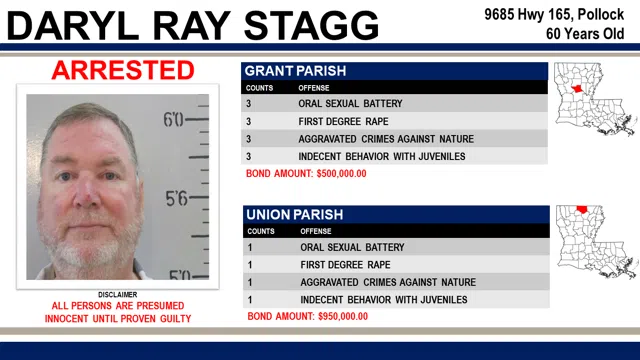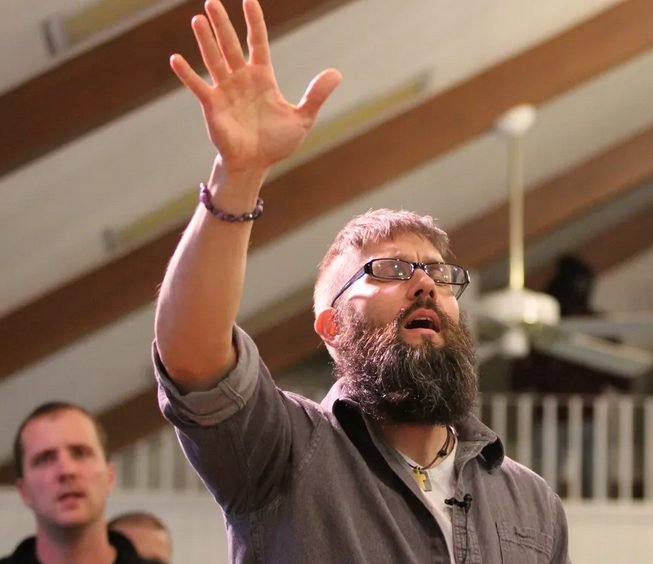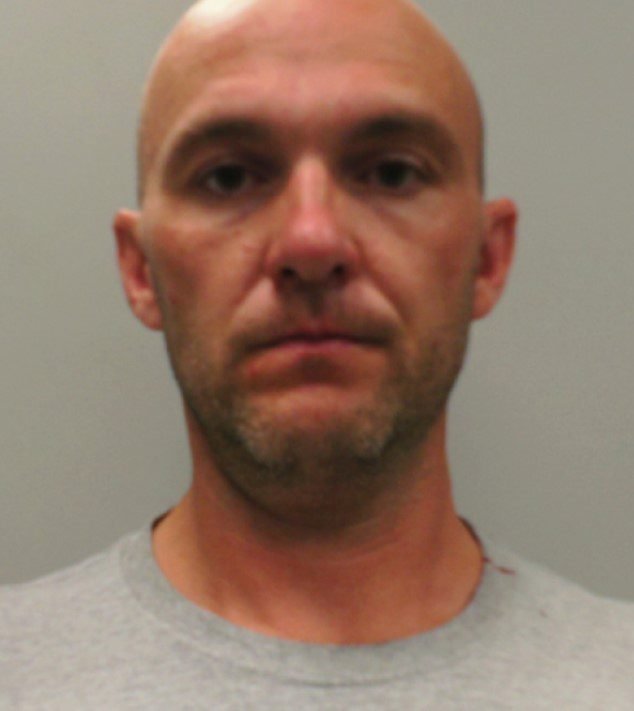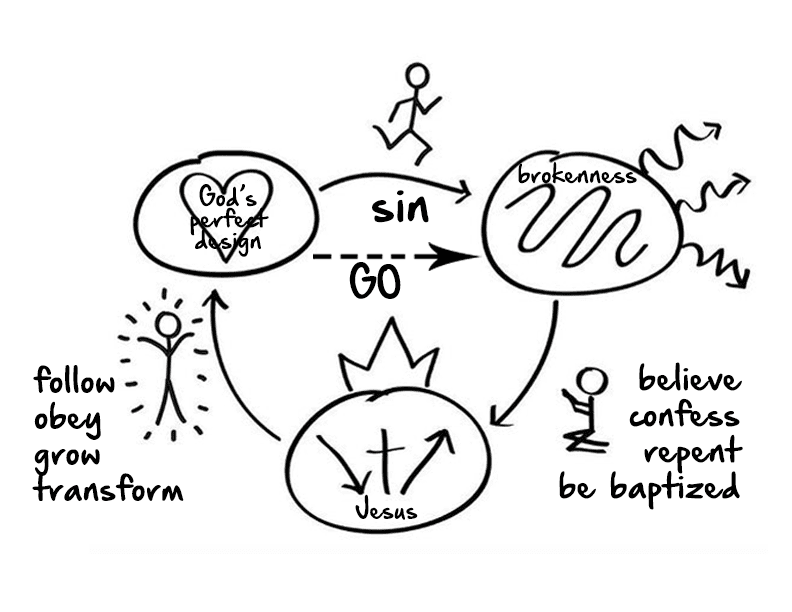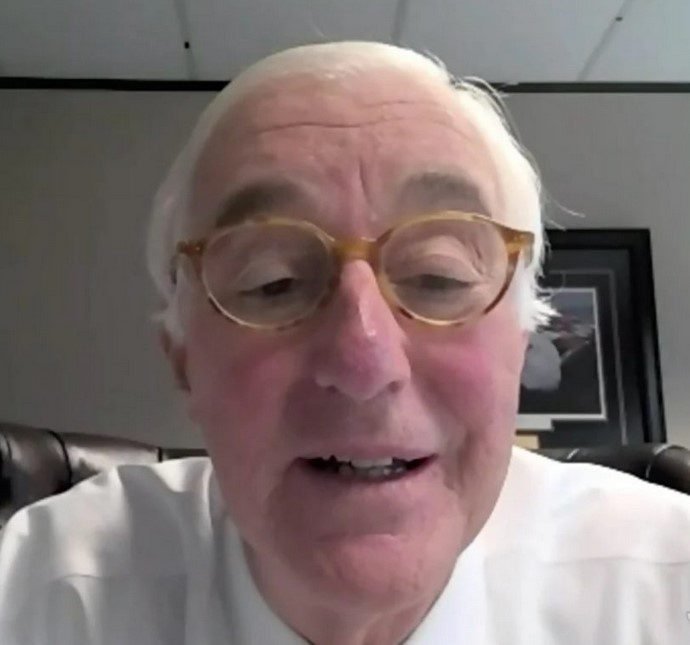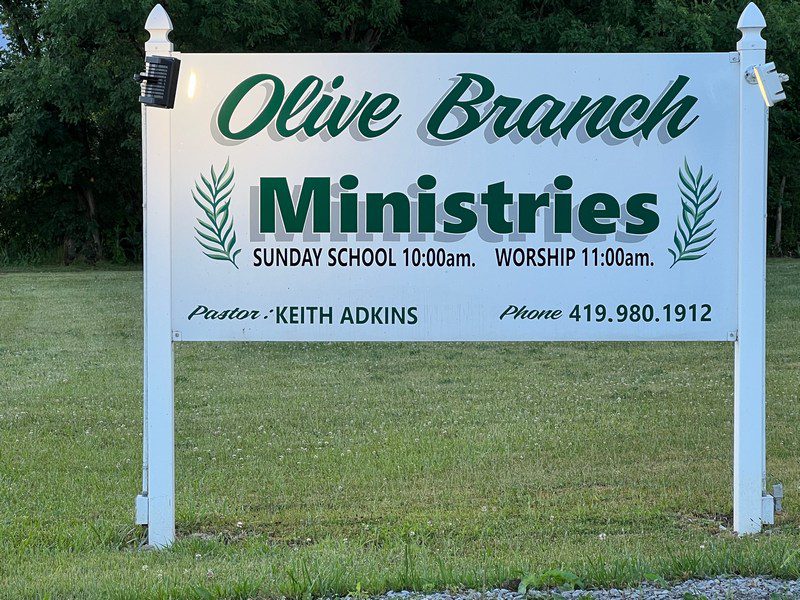
Two miles down the road from our home lies Olive Branch Ministries, pastored by Keith Adkins. One of a plethora of dying Christian churches around us, Olive Branch rebranded itself from Olive Branch [Pentecostal] Church of God, thinking that a fancy new name will magically rejuvenate the congregation and draw new blood to the church. This is a common practice these days by Evangelical churches, thinking if they paint their dying carcass with a patina of bright, shiny colors, Dr. Frankenstein will exclaim, He’s Alive! Granted, many sects are perceived in less than flattering light these days, so I understand why churches might want to trick the public into thinking that what goes on within the four walls of their sanctuaries is new and improved, just what the public is looking for. Southern Baptist congregations are notorious for their rebrands — dropping all public affiliation with the SBC. People uninitiated in the wily practices of area missionaries and church planters might think that a new non-denominational church has come to town, only to find out that the only thing that changed is the name.
I know very little about Olive Branch outside of driving by their building on Sundays and counting the cars in the parking lot. The church had a recent pastor change. Ned Speiser, a local realtor, was the pastor for years before Keith Adkins assumed the pulpit. I do know that Olive Branch is one of the older congregations in Defiance County. I couldn’t find any public information about the church or its pastor. The church has no social media presence. I find it inexplicable for a church in 2023 to not have a quality, informative website and social media presence. (I built my first church website with Microsoft FrontPage in the late 1990s.)
Christianity, by and large, is slowly dying in rural northwest Ohio, with younger adults saying “no thanks,” and boomers and their parents hanging on for dear life, hoping that Jesus is coming soon to rescue them from the horde of unwashed, uncircumcised Philistines amassed at their metaphorical gates. Of course, the Philistines aren’t at their gates. They simply don’t care and have better things to do on Sundays than listen to boring sermons and sing catchy, shallow praise and worship songs. I suspect that by 2050, a lot of local churches will either close their doors or merge with other congregations. When the money dies — think old people — it’s game over.
It is human nature to want to live at all costs. This is just as true for people as it is for businesses and churches. No church wants to close its door, admitting that it failed. So congregations look for ways to regain their glory years; a time when pews were filled with young and old, souls were saved, and offering plates were overflowing. Pastors and other church leaders go to conferences to learn new ways to transform their congregations. One popular method is for churches to change their music. Churches known for hymn singing scrap the old way and start singing praise and worship songs, led by a worship leader/praise team and band (or at least a grandfather with a guitar). Result? Awful music that disconnects parishoners from worship.
Country churches running under one hundred in attendance think they can mimic what they see happening in megachurches; large congregations led by paid professional singers and musicians, using equipment that can cost hundreds of thousands of dollars. What megachurch wannabees fail to see is this: megachurch services are more about entertainment than worship. Small church pastors think that if they preach entertaining sermons like big-name megachurch preachers, people will flock to their churches. Lost on these pastors is that preaching is an art and that it is unwise to mimic other preachers. We attended a church years ago where the pastor was preaching Rick Warren’s sermons word for word. It took me a couple of weeks to catch on to what this mimic was doing, but once I figured out he was stealing Warren’s sermons, we stopped attending. The church closed its doors several years later.
Churches are free to do whatever they want. However, if their goal is growth, they might want to consider how they are viewed by non-attendees. They might want to survey attendees and ask them what they liked and didn’t like about the service they attended. I have thought about becoming a church consultant; someone who would turn a critical eye to their congregations, looking at every facet of their business — from the parking lot to the bathrooms. (I have also thought about being a restaurant consultant.)
Take Olive Branch. Recently, they planted the following sign in their yard. As you shall see, the sign is way too small to be seen by people speeding down the highway at fifty-five miles per hour. I had Polly turn around so I could actually read what the sign said and take a photograph.
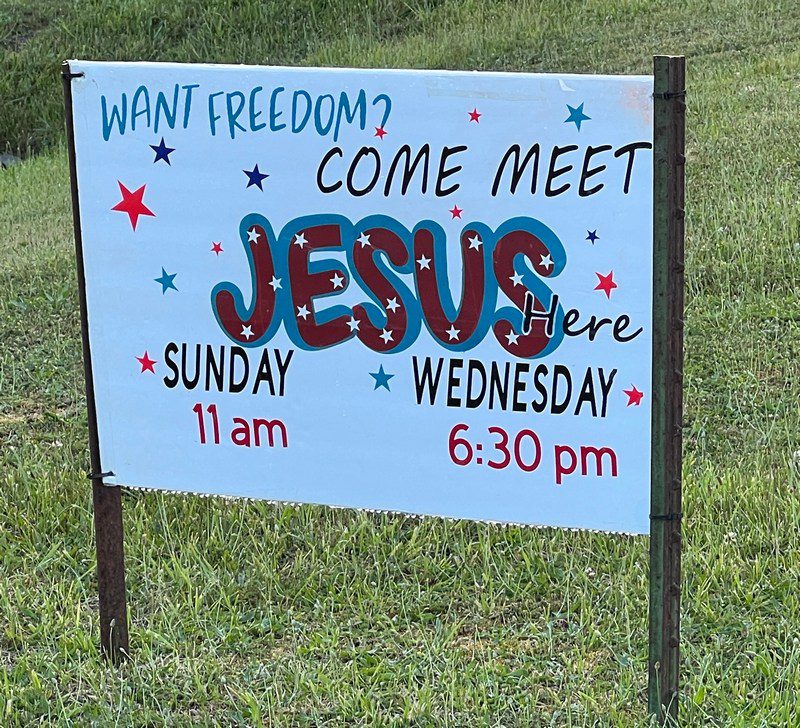
I suspect the church and its pastor believe that “where two or three are gathered [at 11:00 am on Sundays and 6:30 pm on Wednesdays] together in my [Jesus] name, I am in their midst.” I wonder if the church has ever asked themselves how they know they do anything in Jesus’ name, and how would they know that Jesus is in their midst? Hundreds of churches in the four-county area believe the same thing. Imagine being Jesus’ scheduler. Millions of Christian churches across the globe, yet he allegedly is sitting in the front pew of every one of them. Of course, Jesus doesn’t appear physically at these churches. Instead, he’s there in Spirit. How any church can KNOW Jesus is there in Spirit is never stated. I suspect that generation after generation after generation of church members say “Jesus is in our midst,” that everyone assumes this claim is true.
Pastor Adkins and his congregation believe that non-Christian or wrong-Christian passersby are in bondage to sin; lacking the freedom that only their peculiar version of Jesus can give. How do they know this? Bible verses will be quoted and personal testimonies uttered, but those in bondage to sin will just have to take their word for it. As someone who is a sin-loving heathen, I laugh when Evangelicals tell me I am in “bondage.” I reject their presuppositions out of hand, including the anti-human notion that every person who has ever lived on planet Earth was born a depraved sinner, headed for eternal damnation and Hell unless they repent of their sins and put their faith and trust in Jesus Christ.
I left Christianity in 2008. I found that religion was bondage, not life; that I spent fifty years in servitude in Egypt, and once I escaped, I found the Promised Land — a land that flows with reason, common sense, and skepticism.
I wish that Jesus was making public appearances at Olive Branch Ministries at 11:00 am on Sundays. I have a lot of questions I would like to ask him. Alas, I know Jesus will not be appearing at any church this Sunday. He can’t. Jesus was buried two thousand years ago in an unknown Judean grave; all that remains is an idea, one that became hopelessly corrupted by organized religion. If Jesus does make a personal appearance at Olive Branch this Sunday, I suspect he would be a first-time visitor.
Bruce Gerencser, 68, lives in rural Northwest Ohio with his wife of 47 years. He and his wife have six grown children and sixteen grandchildren. Bruce pastored Evangelical churches for twenty-five years in Ohio, Texas, and Michigan. Bruce left the ministry in 2005, and in 2008 he left Christianity. Bruce is now a humanist and an atheist.
Your comments are welcome and appreciated. All first-time comments are moderated. Please read the commenting rules before commenting.
You can email Bruce via the Contact Form.

